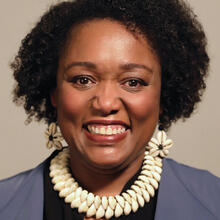“As the Father sent me, so I send you...”
So said Jesus to the Apostles after His Resurrection (John 20:21).
Indeed, the word “apostle” derives from the Greek word “απόστολος,” which means “one who is sent.” We know from Scripture that the Apostles left their homes not only to follow Jesus but also eventually to evangelize the nations far and wide.
Tradition with a “small t” tells us that they visited nearby lands along the Mediterranean Sea and frontiers as far away as Armenia, Britain, Ethiopia, Persia and India. They may have arrived in these lands alone or as part of a small group of fellow disciples. The Apostles were likely unaware or unfamiliar with the people, language, culture and customs of these distant lands.
We know from Scripture that the Apostles left their homes not only to follow Jesus but also eventually to evangelize the nations far and wide.
Yet, the love of Christ compelled them to journey to these far-flung regions, immerse themselves into their local societies and love their people, often even to the point of death.
Today, we lionize the example of St. Patrick, the apostle to Ireland, who drew upon Celtic culture to preach and teach the Gospel.
We celebrate Sts. Cyril and Methodius, known as the apostles to the Slavs, for creating a brand new alphabet to evangelize Slavic populations.
We marvel over the enterprising exploits of the Servant of God Matteo Ricci, S.J., apostle to the Chinese. As a missionary, he mastered intricate language and elaborate customs, rising to become a highly esteemed mandarin among the elite class.
We are looking for our priests to be shepherds; to live among us, to listen to our joys and sorrows, and above all to love us with the heart of Jesus.
Are we expecting such heroic exploits in our own day and time? Maybe.
We are looking for our priests to be shepherds; to live among us, to listen to our joys and sorrows, and above all to love us with the heart of Jesus.
In my last podcast, I talked with the Rev. Erich Rutten, a white priest who pastors St. Peter Claver Catholic Church, a historically Black Catholic parish in Saint Paul, Minn.
He recounted how he prepared for his current assignment at the Institute for Black Catholic Studies at Xavier University in New Orleans, La.
Father Rutten also spoke about “encounter” as a means to overcome distrust and division among people in today’s society.
What are seminarians learning during their formation about engaging and encountering those of different backgrounds or different experiences?
I found his ministry, especially in the wake of George Floyd’s murder in nearby Minneapolis, to be like a light in the dark.
But I wonder why there aren’t more priests like him. Maybe it is necessary to “go further upstream” into the seminaries. What are seminarians learning during their formation about engaging and encountering those of different backgrounds or different experiences?
Today, I talk with the Rev. Bruce Wilkinson about his seminary experience, which he described in his recent article for America: “I Was Kicked Out of Seminary for Being Too Black, But God Wouldn’t Let Me Go.”
His article raises concern about what seminarians learn or, rather, what they do not learn during their formation with regard to evangelizing and ministering to those not like themselves.
When they are sent, in persona Christi, to parishes and people unlike themselves, will they be ready and willing like the Apostles?
“As the Father sent me, so I send you.”








